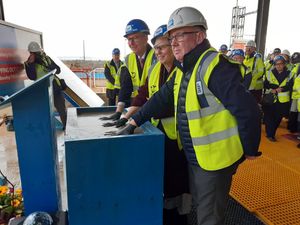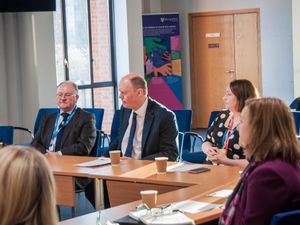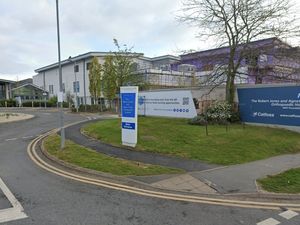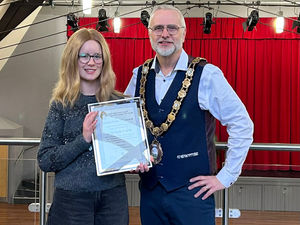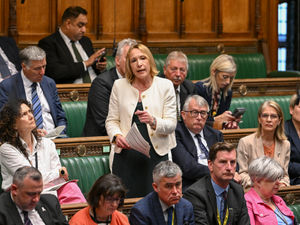Shropshire baby deaths: Parents want public inquiry held
The parents who persuaded Jeremy Hunt to investigate baby deaths at Shropshire's hospitals today said a public inquiry must be held to get answers.
The health secretary has ordered a review into a number of avoidable cases where babes have died in the care of Shrewsbury and Telford Hospitals NHS Trust (SATH), but stopped short of launching a dedicated inquiry.
In a letter to Rhiannon Davies and Richard Stanton, excerpts of which are published today by the Shropshire Star, Mr Hunt says that investigations from NHS Improvement and the Care Quality Commission must be completed first.
The issue has been running for several years.
Mr Stanton and Ms Davies fought for the truth over the death of their daughter Kate, who died in 2009 after being born at Ludlow's midwife-led maternity unit.
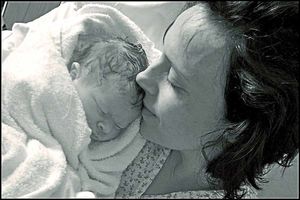
A second investigation into the tragedy was ordered by NHS England, which deemed the first "not fit for purpose".
Eventually it was revealed that there had been a range of "system issues" at the unit, and that changes had been made to Kate's observation notes after she had died.
MORE: Shropshire baby deaths to be investigated
MORE: Jeremy Hunt explains why he ordered investigation
Ms Davies welcomed Mr Hunt's decision to investigate the cases, which affect a number of families, but said that only a public inquiry will give people the answers they need.
She said: "We need an inquiry because the hospital trust is still in denial. They are still saying the numbers are the same as the national average but this is not about the numbers. Every baby's death is a tragedy and an opportunity to learn but we do not feel that has happened.
"They should be apologising. What they are doing is basically trampling on the memory of all the babies' lives who have been lost.
"We are not going away. We are not the only ones and now we have other families behind us, there is momentum behind us. There has to be a public inquiry."
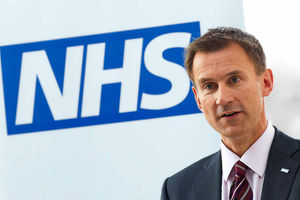
A number of cases have been brought to light over the past two years where inquests have concluded that the deaths of babies in the care of SATH were avoidable.
Only last week Shropshire's coroner John Ellery concluded that the death of one-day-old Pippa Griffiths of Myddle could have been prevented if her mother's concerns were acted upon.
Following the conclusion Pippa's parents, Kayleigh and Colin said that they had to fight to ensure their daughter's death was investigated properly.
Earlier this year the Shropshire Star revealed the tragedy of Shrewsbury mother Kelly Jones, whose twin girls Ella and Lola died before they were born while she was in the care of Royal Shrewsbury Hospital's maternity unit.
A subsequent investigation concluded staff had missed opportunities to deliver the twins after an abnormal CTG monitor - used to check a baby's heartbeat.
A number of tragedies at the hospital have involved heart monitors, including the death of four-month-old Ivy Morris of Oswestry, with Shropshire's coroner, John Ellery concluding that her death could have been prevented if hospital errors had been avoided.
Mr Ellery also found failings in the care given to Kye Hall of Telford and his mother, Katie. An inquest which took place last year concluded that his Kye's death in 2015 could have been prevented if his mother had been classed as high-risk and his heart had been monitored.
Last November an inquest into the death of Oliver Smale, of Hanwood, who died when his shoulders became trapped during birth, concluded the tragedy could have been prevented if tests for gestational diabetes had been carried out, and a caesarian section been completed as planned.
The medical director at the Shrewsbury and Telford Trust, Dr Edwin Borman, has said the death rate at the trust is no worse than other hospitals, but that steps had been taken to address issues with heart monitoring.
He said: "When I look at the perinatal mortality rate at our trust compared to the rest of the NHS, we are at an equivalent level to the rest of the country.
"In the case of foetal heart rate monitoring, we have identified a number of cases where learning has not been fully implemented. We've put systems in place to make improvements.
"Nationally there has been an initiative called Saving Babies' Lives that recognises that throughout the NHS this is a challenge."
The review into the cases is ongoing.

